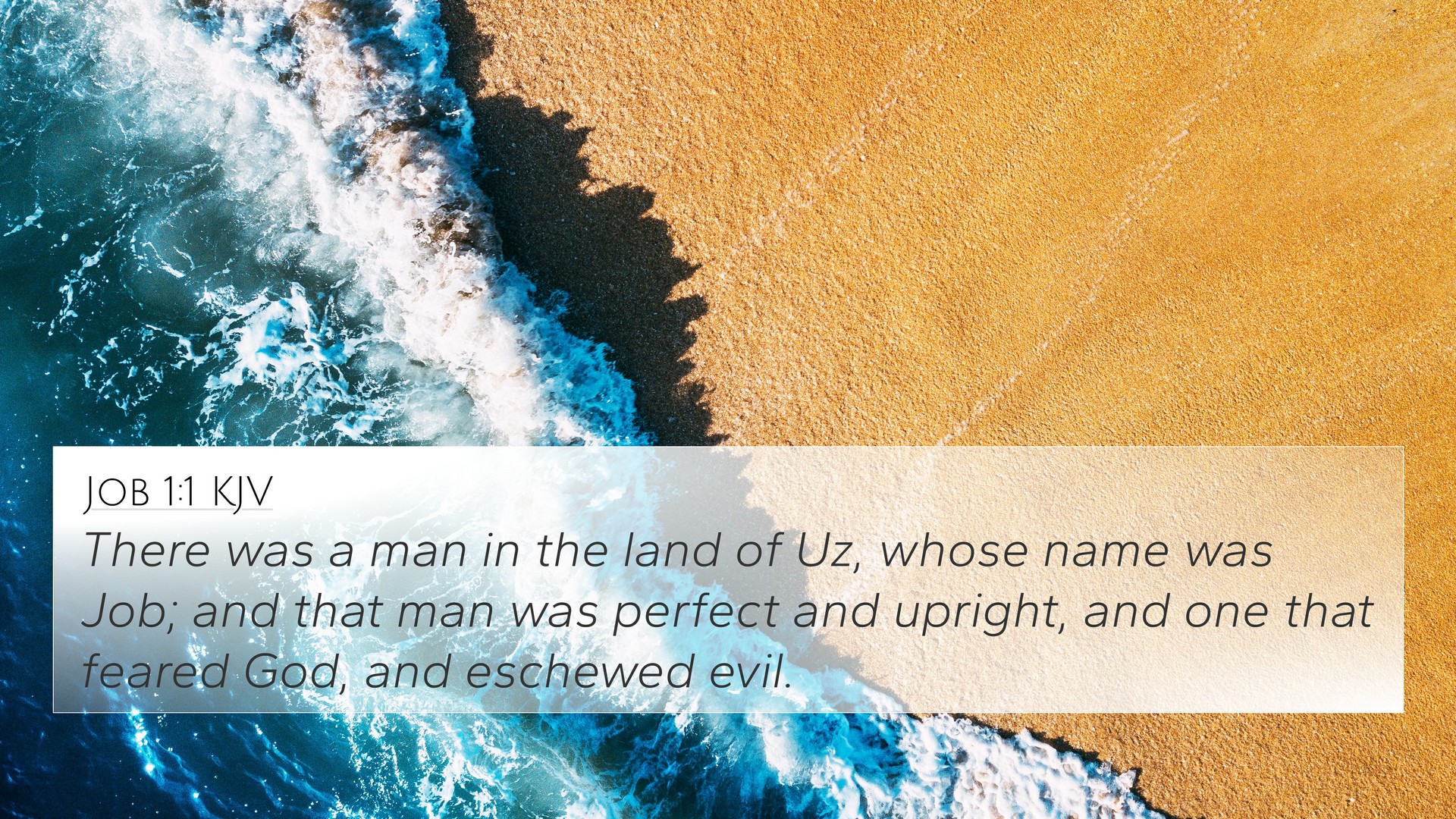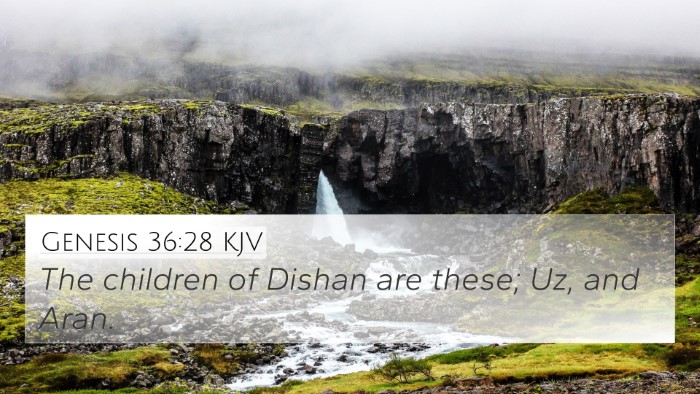Old Testament
Genesis Exodus Leviticus Numbers Deuteronomy Joshua Judges Ruth 1 Samuel 2 Samuel 1 Kings 2 Kings 1 Chronicles 2 Chronicles Ezra Nehemiah Esther Job Psalms Proverbs Ecclesiastes Song of Solomon Isaiah Jeremiah Lamentations Ezekiel Daniel Hosea Joel Amos Obadiah Jonah Micah Nahum Habakkuk Zephaniah Haggai Zechariah MalachiJob 1:1 Similar Verses
Job 1:1 Cross References
There was a man in the land of Uz, whose name was Job; and that man was perfect and upright, and one that feared God, and eschewed evil.
Uncover the Rich Themes and Topics of This Bible Verse
Listed below are the Bible themes associated with Job 1:1. We invite you to explore each theme to gain deeper insights into the Scriptures.
Job 1:1 Cross Reference Verses
This section features a detailed cross-reference designed to enrich your understanding of the Scriptures. Below, you will find carefully selected verses that echo the themes and teachings related to Job 1:1 KJV. Click on any image to explore detailed analyses of related Bible verses and uncover deeper theological insights.
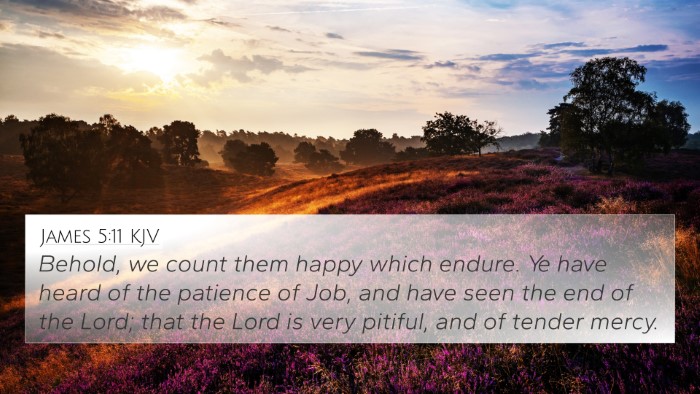
James 5:11 (KJV) »
Behold, we count them happy which endure. Ye have heard of the patience of Job, and have seen the end of the Lord; that the Lord is very pitiful, and of tender mercy.
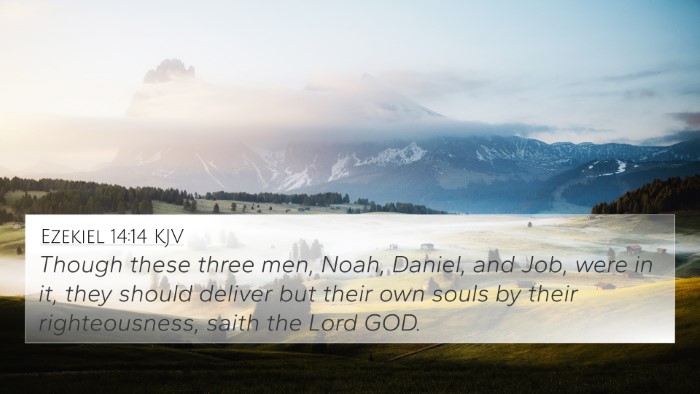
Ezekiel 14:14 (KJV) »
Though these three men, Noah, Daniel, and Job, were in it, they should deliver but their own souls by their righteousness, saith the Lord GOD.
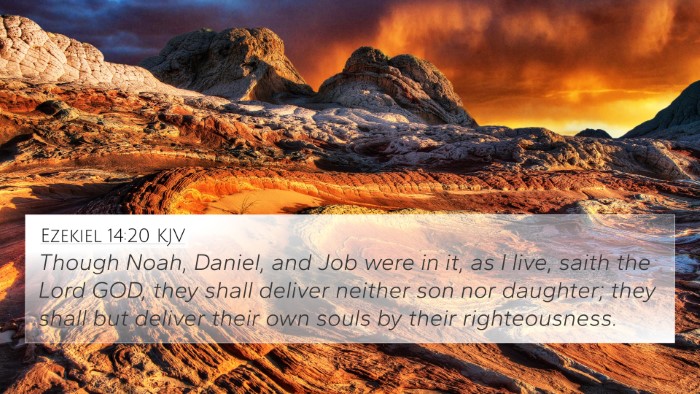
Ezekiel 14:20 (KJV) »
Though Noah, Daniel, and Job were in it, as I live, saith the Lord GOD, they shall deliver neither son nor daughter; they shall but deliver their own souls by their righteousness.
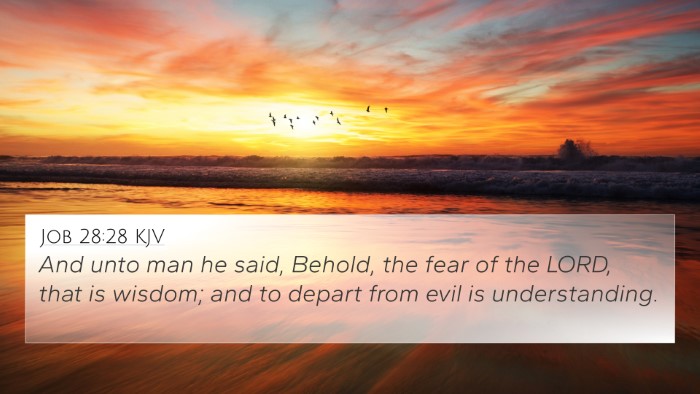
Job 28:28 (KJV) »
And unto man he said, Behold, the fear of the LORD, that is wisdom; and to depart from evil is understanding.

Proverbs 8:13 (KJV) »
The fear of the LORD is to hate evil: pride, and arrogancy, and the evil way, and the froward mouth, do I hate.
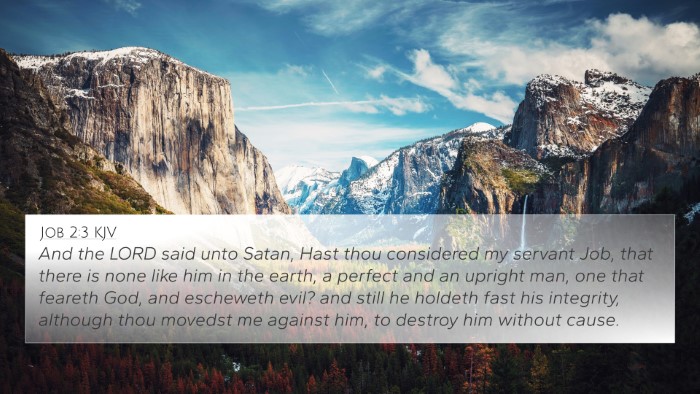
Job 2:3 (KJV) »
And the LORD said unto Satan, Hast thou considered my servant Job, that there is none like him in the earth, a perfect and an upright man, one that feareth God, and escheweth evil? and still he holdeth fast his integrity, although thou movedst me against him, to destroy him without cause.

Genesis 6:9 (KJV) »
These are the generations of Noah: Noah was a just man and perfect in his generations, and Noah walked with God.
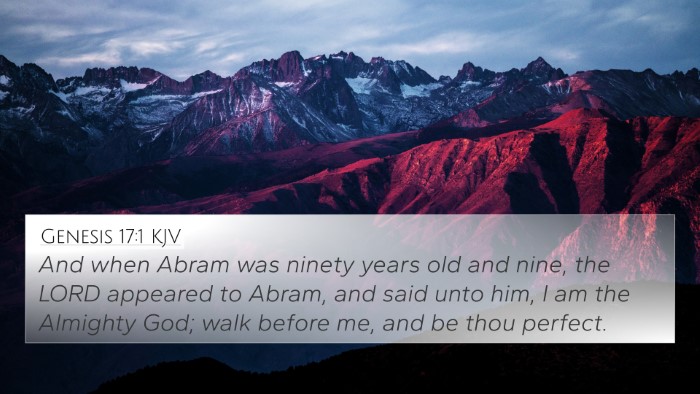
Genesis 17:1 (KJV) »
And when Abram was ninety years old and nine, the LORD appeared to Abram, and said unto him, I am the Almighty God; walk before me, and be thou perfect.

Job 1:8 (KJV) »
And the LORD said unto Satan, Hast thou considered my servant Job, that there is none like him in the earth, a perfect and an upright man, one that feareth God, and escheweth evil?

Lamentations 4:21 (KJV) »
Rejoice and be glad, O daughter of Edom, that dwellest in the land of Uz; the cup also shall pass through unto thee: thou shalt be drunken, and shalt make thyself naked.

Proverbs 16:6 (KJV) »
By mercy and truth iniquity is purged: and by the fear of the LORD men depart from evil.
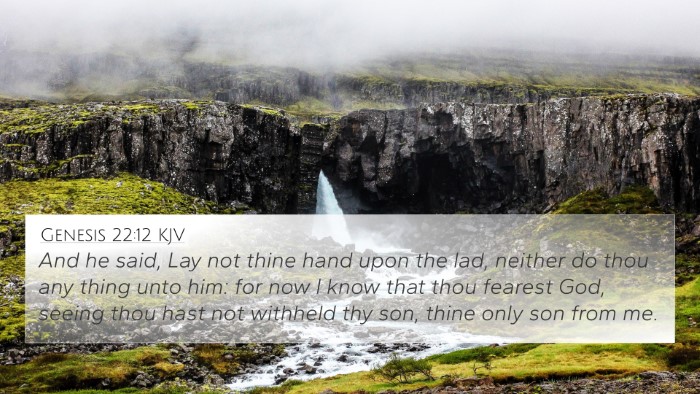
Genesis 22:12 (KJV) »
And he said, Lay not thine hand upon the lad, neither do thou any thing unto him: for now I know that thou fearest God, seeing thou hast not withheld thy son, thine only son from me.
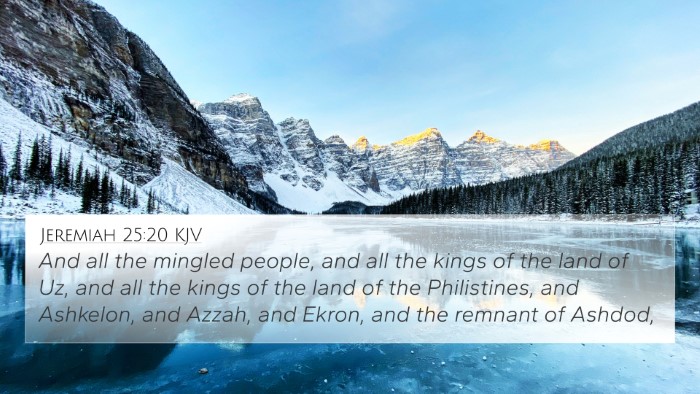
Jeremiah 25:20 (KJV) »
And all the mingled people, and all the kings of the land of Uz, and all the kings of the land of the Philistines, and Ashkelon, and Azzah, and Ekron, and the remnant of Ashdod,
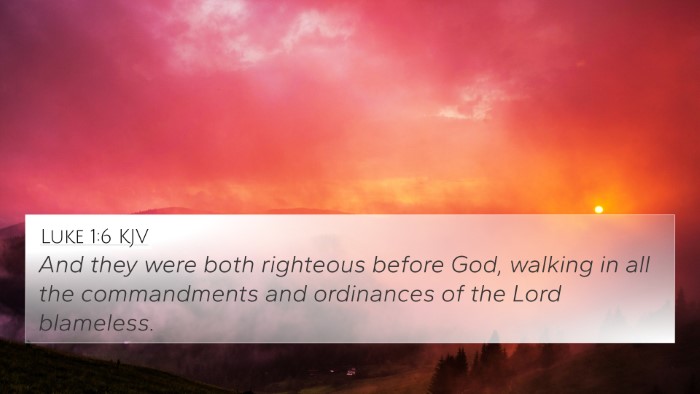
Luke 1:6 (KJV) »
And they were both righteous before God, walking in all the commandments and ordinances of the Lord blameless.

2 Kings 20:3 (KJV) »
I beseech thee, O LORD, remember now how I have walked before thee in truth and with a perfect heart, and have done that which is good in thy sight. And Hezekiah wept sore.

2 Chronicles 31:20 (KJV) »
And thus did Hezekiah throughout all Judah, and wrought that which was good and right and truth before the LORD his God.
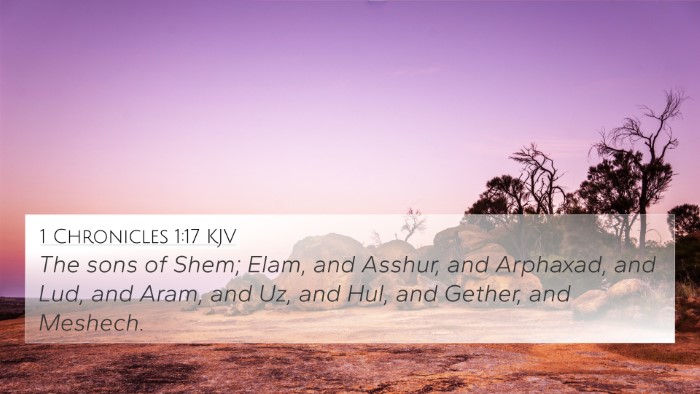
1 Chronicles 1:17 (KJV) »
The sons of Shem; Elam, and Asshur, and Arphaxad, and Lud, and Aram, and Uz, and Hul, and Gether, and Meshech.
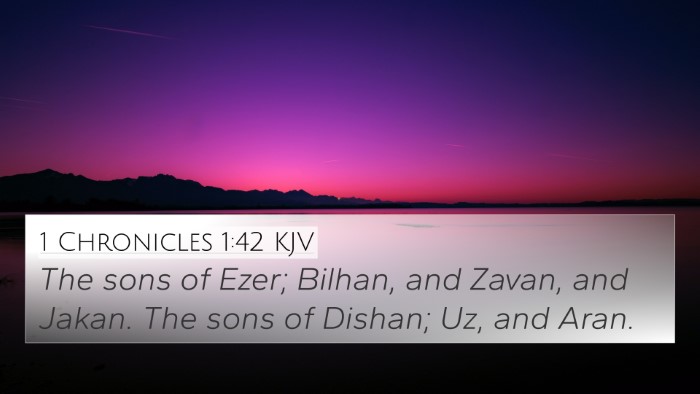
1 Chronicles 1:42 (KJV) »
The sons of Ezer; Bilhan, and Zavan, and Jakan. The sons of Dishan; Uz, and Aran.
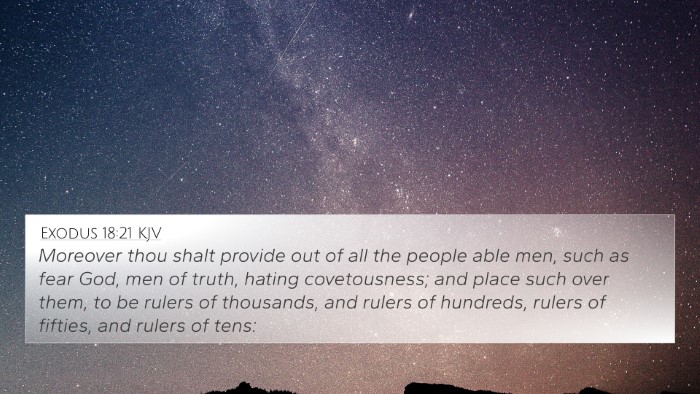
Exodus 18:21 (KJV) »
Moreover thou shalt provide out of all the people able men, such as fear God, men of truth, hating covetousness; and place such over them, to be rulers of thousands, and rulers of hundreds, rulers of fifties, and rulers of tens:
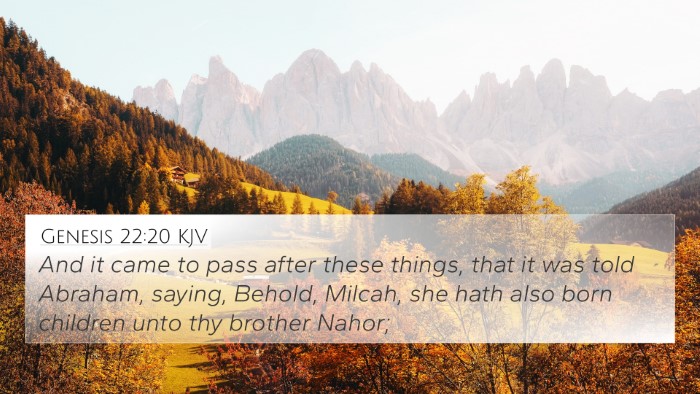
Genesis 22:20 (KJV) »
And it came to pass after these things, that it was told Abraham, saying, Behold, Milcah, she hath also born children unto thy brother Nahor;
Job 1:1 Verse Analysis and Similar Verses
Understanding Job 1:1
Job 1:1 reads: “There was a man in the land of Uz, whose name was Job; and that man was perfect and upright, and one that feared God, and eschewed evil.” This verse serves as an introduction to one of the Bible’s most profound stories. The text provides key insights into Job's character, his relationship with God, and the context of his trials.
General Commentary on Job 1:1
This verse establishes Job as a righteous figure, believed to be the paradigm of faith and integrity. Commentators such as Matthew Henry, Albert Barnes, and Adam Clarke all highlight the significance of Job’s moral standing before God. The attributes ascribed to Job—his perfection, uprightness, and fear of God—are foundational to understand the trials he will face later in the narrative.
Character Analysis of Job
The verse presents Job as:
- Perfect: Flawless in his conduct, embodying completeness in righteousness.
- Upright: Having a straight path in life, avoiding deceit and wrongdoing.
- God-fearing: Exhibiting profound respect and reverence for God.
- Eschewing evil: Actively avoiding sin and wickedness.
Context: The Land of Uz
Job is introduced as a man from the land of Uz, which some commentators identify with the regions near Edom or Arabia. This geographical detail contributes to the understanding of Job's cultural and historical context, making it crucial for the audience to relate to his story.
Thematic Elements
The themes introduced in this verse encompass:
- Righteousness: Job's exemplary moral character sets the stage for the ensuing narrative about suffering and divine justice.
- Humanity's Struggle: Job represents humanity's quest for understanding amidst trials.
- Divine Sovereignty: Job's characterization emphasizes God's authority and control over human affairs.
Cross-Referenced Bible Verses
Several verses relate to Job 1:1, offering a deeper understanding through cross-referencing:
- Genesis 6:9 - "Noah was a just man and perfect in his generations, and Noah walked with God." (Similar emphasis on perfection and righteousness.)
- Psalms 1:1-2 - "Blessed is the man that walketh not in the counsel of the ungodly..." (Affirming the blessings of righteous living.)
- Psalms 37:18 - "The Lord knoweth the days of the upright: and their inheritance shall be for ever." (Highlighting divine recognition of the righteous.)
- Proverbs 14:2 - "He that walketh in his uprightness feareth the Lord..." (Uprightness as a key to godliness.)
- Isaiah 33:15 - "He that walketh righteously..." (Describing characteristics of those who are righteous.)
- James 5:11 - "Behold, we count them happy which endure..." (Alluding to Job's endurance during suffering.)
- 1 Peter 3:14 - "...but even if you should suffer for righteousness' sake, you will be blessed." (A parallel to Job's experience.)
Insights from Commentaries
Matthew Henry remarks on the importance of Job's fear of God, suggesting that it's the foundation of true piety and the motive for his good works. Albert Barnes elaborates on Job's integrity, emphasizing that it was recognized not just by his fellow men but also by God, setting the stage for the challenges that come. Meanwhile, Adam Clarke points out the setting in Uz, highlighting the significance of the locale in understanding Job's trials within a context less familiar than Israel's.
Conclusion
In summary, Job 1:1 presents a thorough foundation for the exploration of suffering, faith, and righteousness. Through historical context, character analysis, and thematic development, the verse invites readers into a deeper relationship with the narrative of Job. The connections established throughout scripture serve to enhance understanding and facilitate comprehensive biblical study.
Further Study: Cross-Referencing Tools
Utilizing tools for Bible cross-referencing can deepen one’s understanding of themes and connections between verses. Resources such as:
- Bible concordances
- Bible cross-reference guides
- Cross-reference systems and study methods
- Comprehensive Bible cross-reference materials
These can aid in identifying connections between the Old and New Testaments and exploring relations between various biblical themes.
